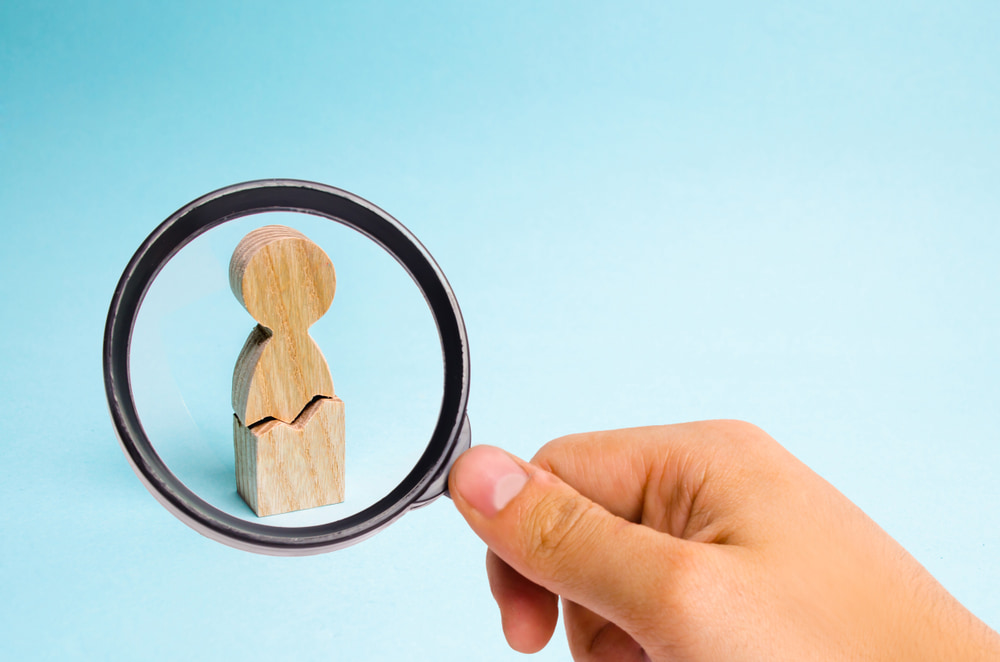There are numerous reasons why becoming separated from your partner and dissolving your marriage or your relationship is stressful and emotionally draining. Relationship separation seems like the end, and that’s exactly what makes it so difficult to deal with. It’s not easy arriving at the end of the road with your partner.
From there, you’ll have to deal with uncertainty about your future, as well as potential emotional intimacy issues in your future relationships if the separation remains permanent. And, these are just some of the hard-to-withstand emotions that stem from the point of separation.
Even if you’re the one pushing for separation, you could still be grieving the breakdown of your relationship and feeling apprehensive about the future. Often the person who decides to leave the relatioship is thought of as not having any grief or sadness. When a relatioshipi is unhealthy and someone needs to separate, it is not easy being the one who finally makes the decision to choose to go.
However, relationships can often be salvageable. If you and your partner are willing to work through your separation at a couples relationship intensive, you might be able to resolve your differences and get back on the right path. If not, there are healthy ways to move on.
What Does Separation Mean In A Relationship?

In a relationship, separation means that you’re taking a break, which may lead to a reconciliation or to a full-on breakup. It means that you and your partner aren’t currently involved romantically or physically, and that you’re taking the time to sort your own stuff out and think about your relationship.
Either you, or your partner, or both of you are unable to remain fully committed to the current state of your relationship and you’re looking for a way to distance yourself from the situation you’re in.
Separation in relationships may not be final. However, it may be a step toward a breakup or divorce.
Becoming separated can be just as emotionally draining and damaging as breaking up with your partner or getting a divorce from your spouse. This is often a very difficult time for both partners. It doesn’t matter if you or your partner is the one who suggested you go down this road, the consequences can be severe either way. However, it can also be a form of emotional respite, which will give you a fresh perspective on your relationship.
What Are The Things To Consider Before Separating?
Sometimes, only one person wants to separate. It can be as simple as your partner telling you they wish to consider other options. Or they may want a longer break from the emotional turmoil that has become your relationship.
You may be the one who’d like to take a break from the relationship. Maybe you’re tired of being in charge of keeping your deteriorating relationship together and want to get some distance. If you’re thinking about separating from your partner, consider your options before you make a decision.
6 Things To Consider Before Separation
Relationship separation is not a small step. In fact, even if you think it’s the best thing for your mental health, know that there are going to be emotional consequences and that you’re going to have to deal with a lot after you decide to get separated from your partner.
Its important to make certain considerations before you actually say you want to separate. Look at it as creating an emotional perseverance mechanism that will protect both you and your partner during this difficult time.
Understand Why You’re Going
OK, you’ve had enough and you can’t take it anymore. Or you simply want something in your relationship to change and give both yourself and your partner some time to work things out and find a better way to show your affection.
Whatever your reason for wanting a separation, you have to be honest about it, first with yourself, and then with your partner. Knowing the reason why will make it easier for you to put things into perspective, and doing the same for your partner will help them make peace with your decision.
Know Where You’re Going
Knowing why you want to separate and what your plan is for after the separation helps a lot. This is particularly essential if you’ve been living with your partner since your routine will change.
Are you going to move out or is your partner? If you’re moving out, where are you going to go? Do you have a friend or a relative who can take you in until you sort things out, or have you already planned your new residence? As pragmatic as it seems and perhaps detached from emotions, you need a roof over your head and that’s something youneed to prepare for.
Talk Everything Through
It all boils down to this, doesn’t it? No matter what the situation in your relationship and no matter what problems you have, it’s best to actually sit down and explain your decision to separate.
Imagine being in your partner’s shoes. Wouldn’t it be nice to know what the reasons for such a decision are? Being honest is good, and telling your partner exactly why you don’t want to be in the relationship for the time being can help both you and them start the next chapter in your lives on the right foot.
Set The Rules
Setting the rules and boundaries during your relationship separation is very important. This way, both you and your partner will know how you can behave and what your separation will look like. This way, you’ll give yourself the time to distance yourself from your partner and actually figure out what you want to do from there. The same goes for your significant other, as they’ll also get a chance to see what they want from the relationship and if they want something at all. So, set the rules, set the boundaries, and understand it’s for the benefit of the both of you.
Be Gentle
If you’re the one instigating the separation, remember to be gentle, especially if your partner is trying their best and they haven’t been abusive or violent. Going through a separation is hard for you, and just imagine how it’s going to be for your unsuspecting partner. So remember to be kind and gentle and to put your thoughts and feelings across mildly. There’s no reason to make it more difficult for anyone.
Be Open To All Emotions
Even if you’re the one deciding to initiate the separation process in your relationship, you’ll still likely go through emotional turmoil. Even if this is something you wanted to do, it’s expected to feel negative emotions as well.
Open yourself to all of your emotions and they’ll show you the way. Who knows, maybe you’ll start missing your partner and start the process of reconciliation, or you’ll realize what else you want from life and go down that road. Acknowledge your feelings and let them guide you.
What Are The Emotional Stages Of Separation?

On the other hand, if your partner starts talking about a separation, prepare for an onslaught of all the different kinds of emotions. At first, it’s easy to get completely overwhelmed with the situation and to fall into a downward spiral. You’ll probably experience separation anxiety and a whole range of negative emotions before you find your feet again.
However, there are healthy ways to deal with the news. You can accept this as another opportunity for growth and a chance to see your relationship with fresh eyes.
7 Stages Of Separation
Although our emotional reactions are highly individual, there are some stages that most individuals go through after their unwilling and unexpected relationship separation. All in all, there are seven stages of separation:
Denial
When a relationship steps into separation, it’s easy to feel denial in the beginning. After all, your relationship as you know it is ending which is highly unpleasant, and you may not want it to be true.
Anger
Once you do realize that you’re actually going to become separated from your partner, it’s usually time to start experiencing anger. Anger because of the situation, because of your partner abandoning you, or because of any other reason you find important.
Guilt
Once anger subsides, you’ll likely calm down and start thinking about all the things you might have done wrong and begin feeling guilty for the separation. Know that there are two people in your relationship and that in most cases, both people contribute to the challenges.
Fear
The deeper your realization of your separation sinks in, the more afraid you might become of being alone and perhaps being unable to find a partner again if your separation becomes permanent. Face your fears, understand that separation is not the end, and even if it is, it’s not the end of your happiness.
Grief
As the separation continues, you’ll likely become sad and overwhelmed by the entire situation. This is perfectly normal. However, know that you’re nearing the end of your separation period and that brighter days are ahead of you.
Re-invention
This is the point when you’re starting to think more clearly and when you’re actually starting to see the light at the end of the tunnel. After walking through the valley of uncertainty and fear, you’re finally opening your eyes to the possibilities surrounding you.
Acceptance
Finally, there comes a time when you accept your situation, pick yourself up, hold your head up high and move on with your life. For some, acceptance may come sooner, for others it may come later. The important thing is that it will come, just you wait for it.
PIVOT’s Here To Help You Understand Relationship Separation & Emotional Stages Of Separation
Separation hurts, even if the relationship or the marriage was not emotionally fulfilling. First, any kind of separation causes a whirlwind of various emotions that you first have to deal with before learning how to actually cope with your separation and finding ways to recover from all the separation-induced resentment.
Long story short, breaking up is rarely a pretty sight and an easy endeavor, and separating from your partner will take a toll on your life. However, what’s important to know is that it’s not the end and that you’ll start feeling satisfied again. If you notice you’re struggling to get there, you can rely on the professionals at PIVOT for assistance.
We have assembled a team of caring, empathetic, and experienced relationship advocates who can help you deal with the aftermath of your separation at our individual workshops or maybe help you and your partner find common ground again at our couple retreat. Whatever your choice is, know that we’ll do everything in our power to help you.



















